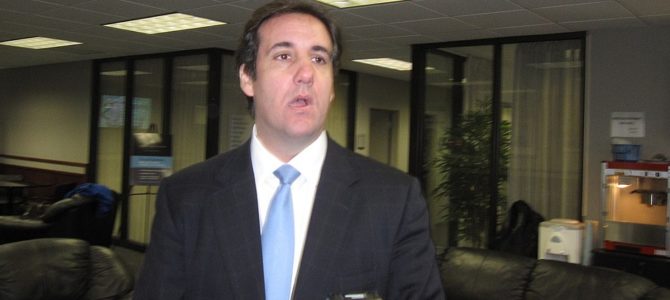As you have likely heard, President Trump’s personal lawyer, Michael D. Cohen, did not have a very good day yesterday.
As first reported by The New York Times, federal agents raided Cohen’s office and seized records relating to a variety of topics, allegedly including payments to onscreen prostitute Stormy Daniels. According to Twitter, a hotel room connected to Cohen was also searched, but it’s unclear if that is true.
Of course, any time the feds execute a search warrant it’s pretty serious business. Here, however, given that it’s the longtime personal attorney for the president of the United States, eyebrows are rightfully raised. The NYT has reported, and Cohen’s attorney confirmed in a statement, that Special Counsel Robert Mueller referred, at least in part, the case to prosecutors in the Southern District of New York (think Chuck Rhoades, for those who watch “Billions”).
As an initial matter, some may be asking why prosecutors didn’t simply subpoena the records. It’s a good question and not easily answered with the little information available. That said, search warrants are often executed without any notice when there is a fear of the destruction of evidence or an ongoing crime.
To obtain a search warrant, prosecutors have to present “probable cause” (usually in the form of a sworn affidavit by a member of law enforcement—e.g., an FBI agent) to a federal judge. Basically, there has to be evidence that a crime has been, or is being, committed. Hunches and speculation will not cut it. While there has been talk in the past several months about secret court warrants being signed without any real evidence, it’s extremely unlikely that a federal judge in the SDNY signed a search warrant based on guesswork.
As for the referral to the SDNY, if I had to guess, I would say its investigation of Cohen is unrelated to Mueller’s “Russia” investigation and likely outside Mueller’s mandate, although some, including this author, think Mueller has already strayed outside his mandate. That’s an article for another time.
However, as part of Mueller’s investigation, Cohen has produced thousands of pages of documents. There is a good chance that these materials, at least in part, sparked Mueller’s referral.
Earlier this year, Cohen admitted that he had paid Daniels $130,000 “out of his own pocket” for his “client” and “friend” President Trump. The payment was several weeks before the 2016 election, and has given rise to talk of possible violations of the Federal Election Campaign Act. That’s something this lawyer knows nothing about, so I will leave it there.
Late yesterday, the Washington Post reported Cohen is being investigated for bank fraud as well. It’s also quite common for the feds to include allegations of money laundering when money is involved, so there is a chance that’s in play.
You may be wondering about the seizure of materials covered by attorney-client privilege. There are rules that cover this, and generally speaking the prosecutors and agents investigating the case should never see any such materials. There are “taint teams” that review potentially privileged information, and keep it walled off from the attorneys prosecuting the case. Indeed, given that a law office was the subject of the raid, there was likely a special agent on site during the execution of the search warrant to ensure privileged materials were handled in an appropriate manner.
It remains to be seen how this all shakes out. The SDNY does thorough investigations and will be exhaustive in its work. If a grand jury ultimately returns an indictment against Cohen, what that ultimately means for him few can predict. The president, however, should probably look into new counsel.









